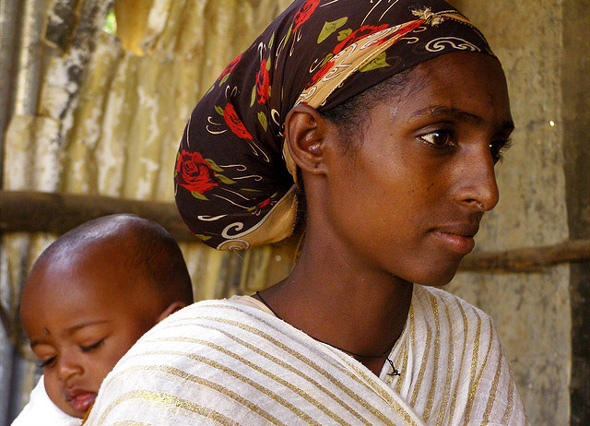Here we are on my second day of side events at
Rio+20 and the
Aspen Institute,
International Planned Parenthood Federation, and the
United Nations Foundation convened a high-level moderated dialogue this morning to raise the profile of human development, gender, and reproductive health at the main conference.
Rio+20 is an unprecedented opportunity to draw attention to sustainable development and the role women’s rights and voices play in it. The Aspen/IPPF/UN Foundation event was timely as some negotiators are questioning the link between women and sustainable development in the 11th hour instead of reaffirming the commitments made 20 years ago at international conferences in Rio, Cairo, and Beijing.
High-level leaders, including Gro Harlem Brundtland (Former Prime Minister of Norway), Musimbi Kanyoro (President and Chief Executive Office of the Global Fund for Women), Tewodros Melesse (Director General of the International Planned Parenthood Federation), Mary Robinson (Former President of Ireland and President of the Mary Robinson Foundation – Climate Justice), and Tim Wirth (President of the United Nations Foundation), spoke to the role of women’s empowerment and family planning in the global discussion of sustainable development.
Some highlights from the meeting:
Brundtland noted that the next increment of economic growth could come fully from women’s empowerment. Family planning is a cross-cutting and cost-effective way to ensure this possibility.
Kanyoro further emphasized that for development organizations, women, more than any other partner, have the potential to enable sustainable growth.
Melesse discussed the role of addressing the special needs of young women. “If they are not met, we will have failed at sustainable development,” he said.
Robinson argued that family planning must be mainstreamed in international conferences, like Rio+20 and the annual UN climate COPs, as a human rights issue. Women’s issues cannot be add-ons in outcome documents – they have to be front and center. “We know what works,” she said, referring to effective reproductive health efforts and their ability to advance human rights and sustainable development
Wirth spoke passionately about the basic rules of diplomacy: do no harm and no backsliding. He remarked that hard earned gains from previous UN documents, although limited, must not be lost. They must be considered as statements from governments around the world and as resounding affirmation of the rights of women, he said.
For more, see Vicky Markham’s thoughts on the meeting at RH Reality Check too.
Stay tuned to see whether official negotiations in Rio – which start tomorrow – will heed these calls.
Photo Credit: “Etiopía,” courtesy of flickr user subcomandanta.

 A Publication of the Stimson Center.
A Publication of the Stimson Center.




